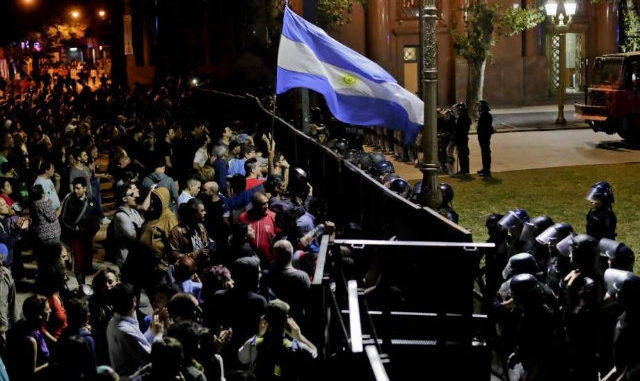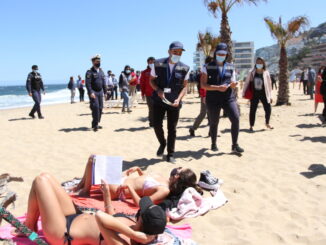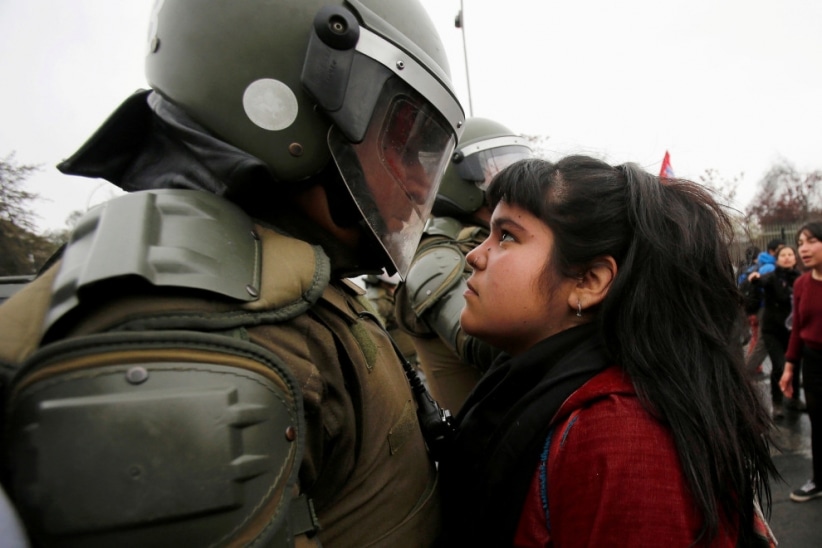
BUENOS AIRES – Argentina’s government on Tuesday passed a controversial reform of the South American country’s pension system amid violent protests in capital Buenos Aires.
Clashes between protesters and police broke out on Monday ahead of the vote, amid fears that the changes would have a heavy impact on the poor. But the governing coalition managed to push through the changes on Tuesday, winning the vote 128-116.
President Mauricio Macri’s government said the move was needed to lower the deficit.

One of the controversial changes in the new law is moving the retirement age from 65 to 70 for men and from 60 to 63 for women.
At the same time, changes are to be made to the formula used to calculate payments, which is expected to lower the amounts paid.
The Senate had already approved the bill. But the vote in the lower house, originally scheduled for last Thursday, had been delayed because of civil unrest.
Argentina suspends debate on pension reform after violent protests
After the initial disruption, President Macri promised an additional payment to existing pensioners as a concession. But demonstrations continued when lawmakers returned to the debate in congress.
On Monday Demonstrators threw bottles, rocks, and gasoline bombs, while police in riot gear responded with tear gas, rubber bullets and jets of water. Authorities said 48 people had been arrested and 149 were injured, including police officers, retirees, and journalists.

After nightfall, protests continued, with residents banging pots and pans in a traditional show of protest.
Argentina’s largest union began a 24-hour general strike at noon Monday to protest the bill, which was being debated in the lower Chamber of Deputies. Hundreds of airline flights were grounded in the Argentine capital due to the stoppage.
Despite the unrest, congress approved the measures on Tuesday morning.
Leader of the opposition Peronist party, Agustin Rossi, said the new law harmed pensioners.
Hay mezcla de angustia y bronca en el conjunto de la sociedad que se siente estafada por esta ley. Ahora va a empezar una resistencia pacífica.
— Agustin Rossi (@RossiAgustinOk) December 19, 2017
He said in a tweet: “There is a mixture of anguish and fury in society as a whole, which feels ripped off by this law. Now peaceful resistance will begin.”
Since taking office in 2015, Macri has vowed to rein in government spending and revive Argentina’s lagging economy. But his ordering of job cuts and the cutting of utility subsidies has fueled labor unrest.
In October, the conservative leader announced that he would seek more sweeping changes in tax, education, and labor after his governing coalition scored a resounding victory in congressional elections.



